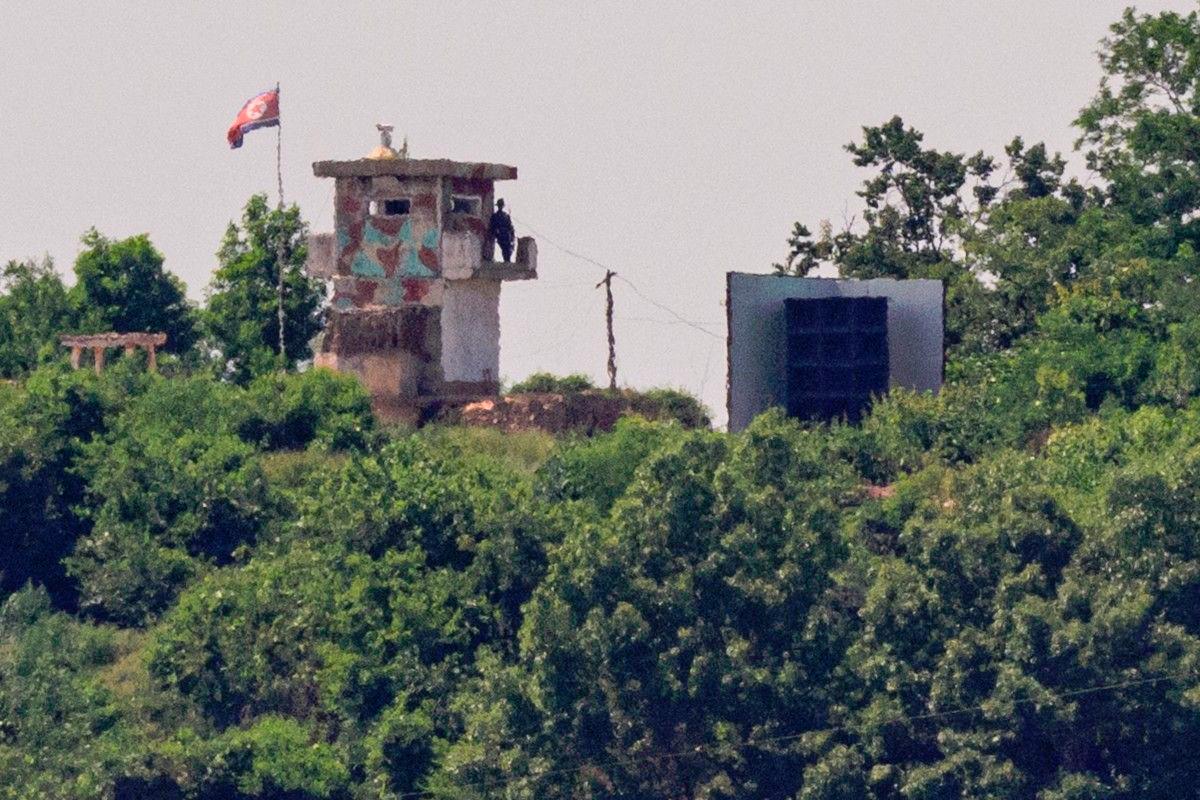SEOUL: North Korea appears to have stopped broadcasting strange and unsettling noises along the border, Seoul’s military said Thursday, a day after South Korea ceased blaring its own loudspeaker propaganda northwards.
The North has been broadcasting a horror movie-esque soundtrack into border areas since last year, as part of an escalating propaganda war between the arch foes.
But South Korea’s new President Lee Jae-myung, who took office last week after his predecessor was impeached over an abortive martial law declaration, ordered the military to stop blasting K-pop and news reports into the North in a bid to “restore trust”.
“Today, there was no region where North Korea’s noise broadcasts to the South were heard,“ Seoul’s military said in a statement Thursday.
“The military is closely monitoring related trends in North Korea.”
Relations between the two Koreas have been at one of their lowest points in years, with Seoul taking a hard line towards Pyongyang, which has drawn ever closer to Moscow in the wake of Russia’s invasion of Ukraine.
But South Korea’s new president has vowed to improve relations with the North and reduce tensions on the peninsula, halting the loudspeaker broadcasts Seoul had begun last year in response to a barrage of trash-filled balloons flown southward by Pyongyang.
The North claimed the balloons -- which contained toilet paper and other garbage -- were retaliation for similar missives floated northwards by activists in the South, carrying anti-Kim Jong Un propaganda.
North Korea resumed its own propaganda broadcasts soon after, sending strange and eerie noises -- such as chilling music and what sounds like bombs exploding -- into the South, prompting complaints from border residents.
On Ganghwa island, which is close to the North, the strange noises were last heard Wednesday at around 6:00 pm (0900 GMT), its county councillor Park Heung-yeol told AFP.
“And from 8:00 pm to 9:00 pm yesterday, the North broadcast its propaganda music, instead of the strange noise,“ he added.
“I slept so well last night. I had not been able to do that for so long,“ another Ganghwa resident An Mi-hee told AFP.
‘Cost of their blood’
South Korea’s Unification Ministry, which oversees contact with the North, said Pyongyang’s apparent move to end the noise broadcasts “helped relieve the suffering of residents in (South Korea’s) border areas”.
It “has become a meaningful opportunity to ease inter-Korean military tensions and restore mutual trust,“ a ministry official told reporters on condition of anonymity.
Lim Eul-chul, a professor at the Institute for Far Eastern Studies in Seoul, told AFP that the moves were “an encouraging development.”
“North Korea’s halt of its noise broadcasts sends a positive signal to the South,“ he said.
“Given the current approach of the new government, a fragile but meaningful peace is likely to hold -- at least for now. There is reason to hope for an improvement in inter-Korean relations,“ Lim added.
South Korea’s Lee has promised a more dovish approach towards Pyongyang, compared with his predecessor Yoon Suk Yeol.
On the campaign trail, Lee accused Yoon of deliberately provoking the North to justify his martial law bid in December -- prompting backlash from conservatives.
The nuclear-armed North has recently bolstered military ties with Russia, sending at least 14,000 troops to support Moscow’s war in Ukraine.
On Thursday, North Korean state media quoted leader Kim as saying that ties between the North and Russia have developed into an “indestructible, genuine” relationship.
In a congratulatory message to Russian President Vladimir Putin on the occasion of Russia Day, Kim said the allies’ improved ties were “thanks to... the cost of their blood in the just sacred war to defend the sovereignty and territorial integrity of Russia.”
The two Koreas technically remain at war because the 1950-53 conflict ended in an armistice, not a peace treaty.









